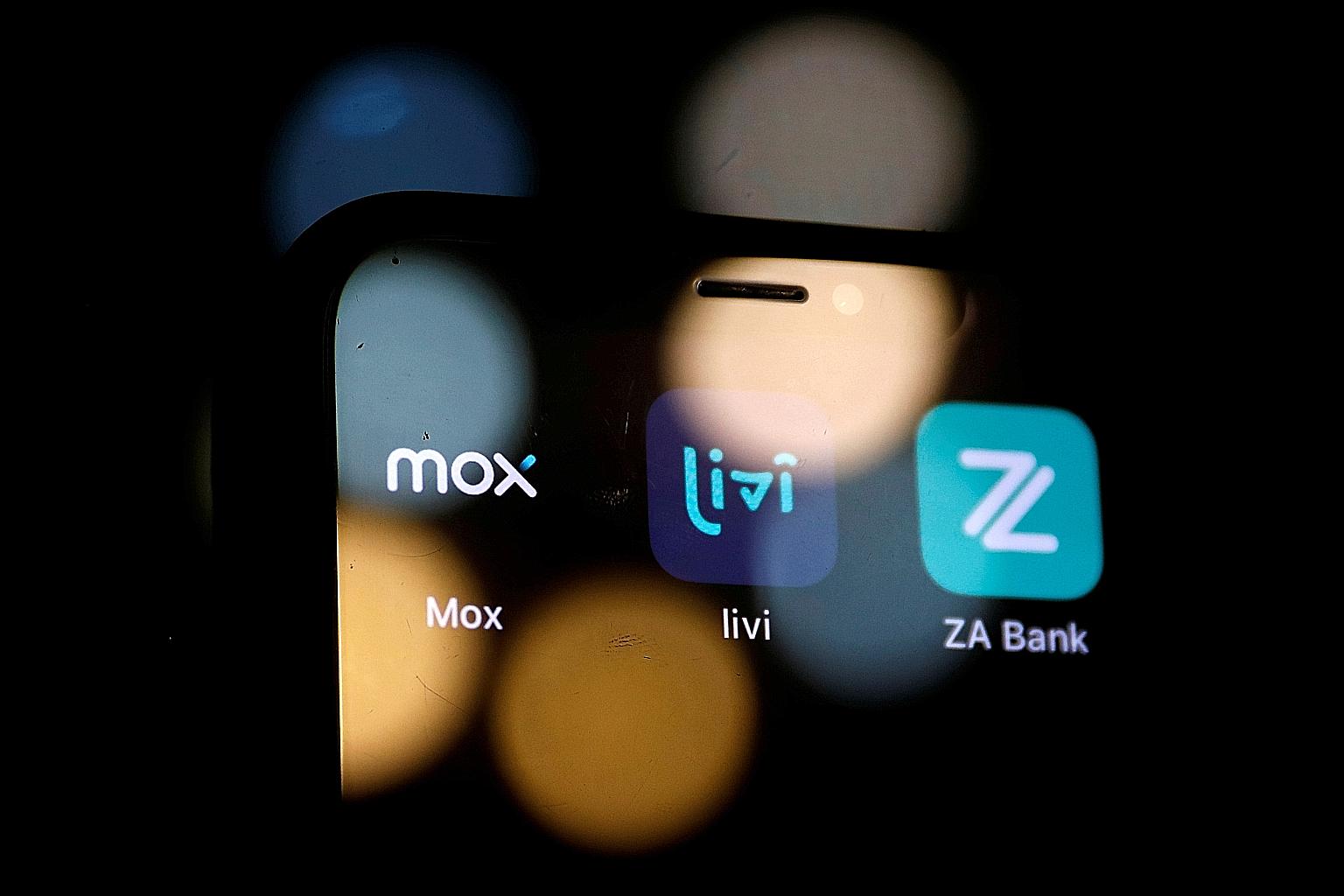HK's digital bank upstarts years away from profits
Sign up now: Get ST's newsletters delivered to your inbox

Mox Bank and ZA Bank, two leading digital banks in Hong Kong, predict they will start breaking even by 2024 at the earliest. Over a year after the first virtual bank was launched, such banks are gaining traction but are yet to pose a serious threat to bricks-and-mortar incumbents.
PHOTO: REUTERS
HONG KONG • Hong Kong's virtual banks are facing years of red ink after making limited inroads against their bricks-and-mortar rivals in the financial hub.
The two leading digital banks Mox Bank - backed by Standard Chartered - and ZA Bank - bankrolled by China's ZhongAn Online P&C Insurance - predict they will start breaking even by 2024 at the earliest as they continue to build up operations and roll out new products.
Launching a bank - even a virtual one - is capital intensive and it typically takes years to scale up and be profitable.
Over a year after the first virtual bank was launched, they are gaining traction but are yet to pose a serious threat to incumbents such as HSBC, Hang Seng Bank and even Standard Chartered itself.
"When you look at the global examples, there are a couple of digital banks, they just reached break-even after five, six years," Mox chief executive Deniz Guven said. Mox could start turning a profit in three to four years, he added.
Digital banks are vying for a slice of the city's retail, commercial and corporate banking revenue, estimated by consulting firm Quinlan & Associates at HK$373.9 billion (S$63.8 billion) last year. Hong Kong's eight virtual banks had attracted HK$19 billion in deposits as at March 31, or about 0.1 per cent of the city's total, said a Hong Kong Monetary Authority official.
ZA, the first digital bank to launch in March last year, had more than 300,000 customers, while Mox, which started in September, had over 90,000 clients as at March. The two make up about 62 per cent of the total 630,000 accounts opened at the digital banks. Many of these customers also have accounts with other lenders.
While ZA initially offered a gimmicky deposit rate as high as 6.8 per cent, the lenders have refrained from undercutting their traditional rivals on price.
Mox offers a 0.65 per cent rate for deposits and, according to Mr Guven, does not want to compete on pricing alone. "We believe that fair pricing is most important," he said. "You do not need to be dead competitive."
In response to the emergence of digital rivals, traditional banks have "reacted quite promptly" since 2019, upgrading their digital channels and rethinking some of their minimum deposits and fees, according to ZA CEO Rockson Hsu.
The incumbent banks have been "aggressive" and many have cut or eliminated fees. For example, HSBC scrapped some general banking and transaction fees, and also removed its monthly fee for customers with deposits below HK$5,000, the consulting firm said.
Mox plans to increase headcount by 20 per cent this year, adding about 40 staff to its current number of about 190.
The lender started offering a credit card this month and plans to introduce loans, foreign exchange and wealth products.
ZA is also in hiring mode as it adds offerings, including wealth management. The products could include mutual fund, fixed income and stock trading. Roughly half of ZA's staff are in Hong Kong and the rest in Shenzhen, said Mr Hsu.
Another digital upstart, Airstar Bank, said in a statement this week that it would be the first virtual bank to offer a remote on-boarding service for small businesses in the city through a pilot programme.
BLOOMBERG


